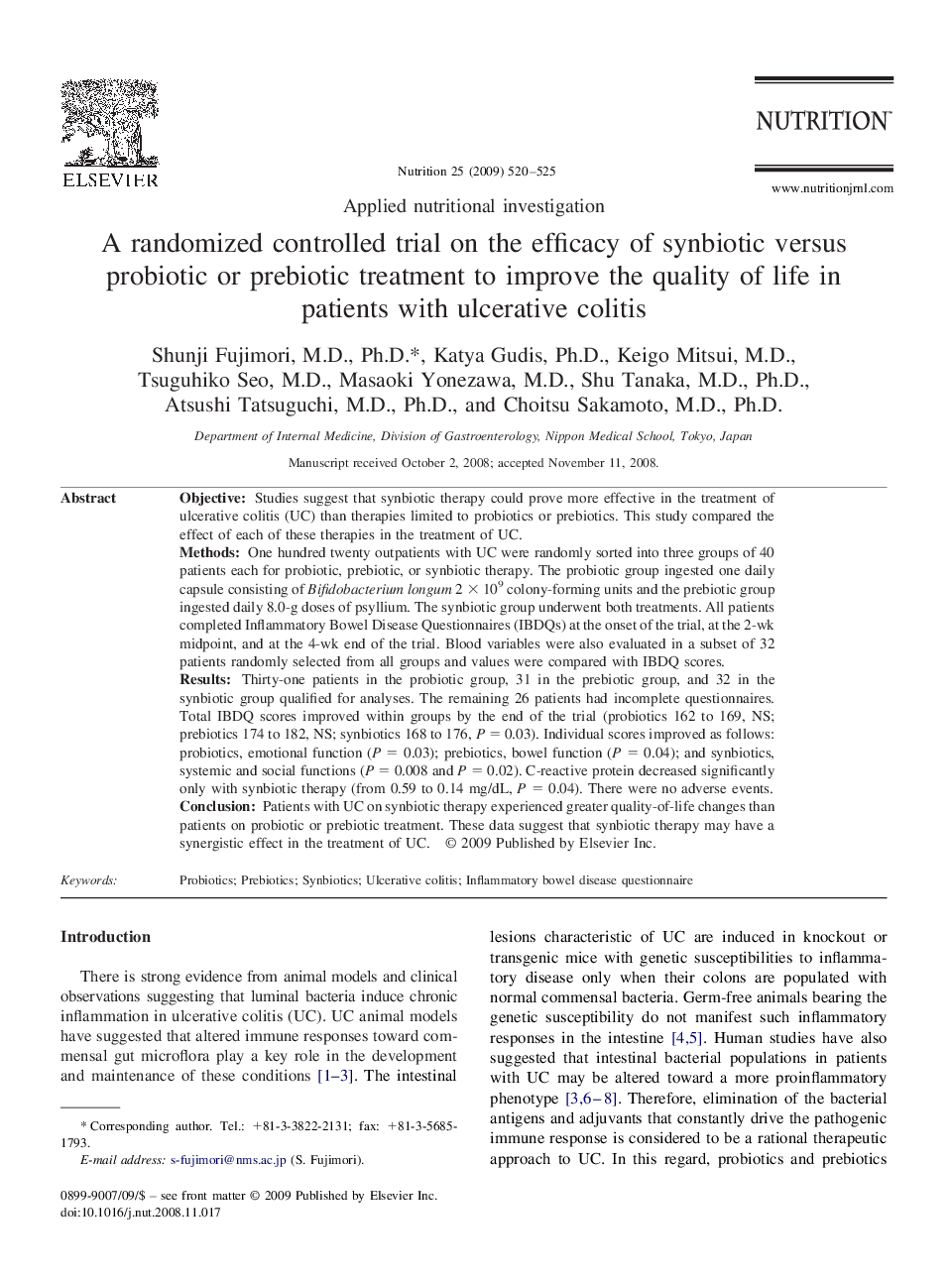| Article ID | Journal | Published Year | Pages | File Type |
|---|---|---|---|---|
| 3276947 | Nutrition | 2009 | 6 Pages |
ObjectiveStudies suggest that synbiotic therapy could prove more effective in the treatment of ulcerative colitis (UC) than therapies limited to probiotics or prebiotics. This study compared the effect of each of these therapies in the treatment of UC.MethodsOne hundred twenty outpatients with UC were randomly sorted into three groups of 40 patients each for probiotic, prebiotic, or synbiotic therapy. The probiotic group ingested one daily capsule consisting of Bifidobacterium longum 2 × 109 colony-forming units and the prebiotic group ingested daily 8.0-g doses of psyllium. The synbiotic group underwent both treatments. All patients completed Inflammatory Bowel Disease Questionnaires (IBDQs) at the onset of the trial, at the 2-wk midpoint, and at the 4-wk end of the trial. Blood variables were also evaluated in a subset of 32 patients randomly selected from all groups and values were compared with IBDQ scores.ResultsThirty-one patients in the probiotic group, 31 in the prebiotic group, and 32 in the synbiotic group qualified for analyses. The remaining 26 patients had incomplete questionnaires. Total IBDQ scores improved within groups by the end of the trial (probiotics 162 to 169, NS; prebiotics 174 to 182, NS; synbiotics 168 to 176, P = 0.03). Individual scores improved as follows: probiotics, emotional function (P = 0.03); prebiotics, bowel function (P = 0.04); and synbiotics, systemic and social functions (P = 0.008 and P = 0.02). C-reactive protein decreased significantly only with synbiotic therapy (from 0.59 to 0.14 mg/dL, P = 0.04). There were no adverse events.ConclusionPatients with UC on synbiotic therapy experienced greater quality-of-life changes than patients on probiotic or prebiotic treatment. These data suggest that synbiotic therapy may have a synergistic effect in the treatment of UC.
